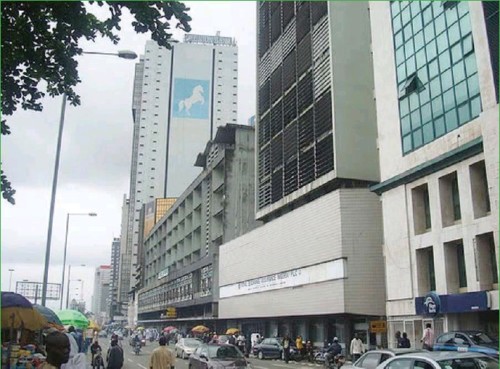
The projections by numerous economists, both international and local, on Nigeria’s 2019 growth, have been cautiously optimistic. The International Monetary Fund (IMF), in October 2018, projected a 2.3 percent growth in Nigeria’s Gross Domestic Product (GDP). The same projection was re-echoed by the World Bank and a London based provider of economic intelligence, FocusEconomics.
For the World Bank, Nigeria’s real GDP would rise by 2.2 percent in 2019 while FocusEconomics projected a 2.1 per cent growth. In all, the projections were based on the expectation of crude oil sales at an average of $69 per barrel. According to the FocusEconomics, the growth was achievable with a recovery in crude oil production.
However, these projects were quickly revised last month, when the IMF downgraded its initial projection from a 2.3 percent growth in GDP to 2.0 percent. Compared to the entire Sub-Saharan region, the projected growth is considerably low as over a one-third of sub-Saharan economies are expected to record a growth of above 5 percent between 2019 and 2020.
Citing a decline in crude oil prices, the IMF based its latest forecast on the sale of crude at an average price of just below $60 per barrel. This is because crude oil prices as at January 2019 stood at $55 per barrel, with analysts expecting prices to remain at that level generally over the next 4 to 5 years.
Starting from 2013, the global crude oil market began to record a decline in prices due to the oversupply of the product and falling demand. For developed and agricultural based economies, this fall in crude oil prices was made up by revenue from non-oil economic activities.
For Nigeria, an oil-based economy, this was a disaster and the major cause of the recession the country was only able to get out of when crude oil prices began an upward climb in 2017. With the United States, poised to pass a bill that would open up the Organisation of Petroleum Exporting Countries (OPEC) to anti-trust lawsuits, making it possible to sue OPEC for cutting down oil production to in order ramp up oil prices, the volatility of the global crude oil market is far from over.
Meanwhile the 2019 N8.83 trillion budget is based on a crude oil benchmark of $60 per barrel, which makes a fall in international crude oil prices another disaster for Nigeria.
Granted there has been growth in non-oil sector revenues; the sector in Q3 2018, contributed 90.62 per cent to total Goss Domestic Product (GDP) compared to the oil sector’s 9.38 per cent. This growth has been reportedly driven by information and communication, agriculture, manufacturing, trade, transportation and storage and professional, scientific and technical services. While this is cheering news, much work needs to be done if Nigeria must avoid a relapse into recession, should oil prices fall.
For starters, the Federal Government must hasten the strengthening of institutions and structures, which would drive trade and economic development. A case in point is the Apapa gridlock, which requires a lasting solution that would not only increase the output of agricultural exports, but also encourage the return of cargo diverted to other West African seaports.
As it is, no developed economy runs on the success of one seaport alone. The Federal government must muster the political will to make the Calabar and Warri seaports function at a 100 percent capacity. Both seaports are located in areas renowned for the export of oil palm, cocoa, rubber and other cash crops, prior to the oil boom.
Ensuring the dredging of both seaports will do more to encourage agricultural investment and exports in both regions, more than any loan from the government. In the area of logistics, Nigeria must also hasten the movement from a dual mode of transportation to a multi-modal transportation system. This would increase the efficiency of goods and service delivery and in addition, create jobs for the large population of unemployed youths.
For the now, crude oil prices have begun a gradual climb, to $64.56 per barrel above Nigeria’s benchmark of $60. It is expected that this unplanned for excess would be deployed efficiently for the development of the non-oil sector, to aid its contribution to the national GDP.
The success and by extension, the fate of the Nigerian economy, depends solely on the rise or fall of crude oil prices. The federal government’s decision on how this excess revenue is expended is the pendulum that would either swing Nigeria back to a recession or move her onto the path of economic prosperity.
